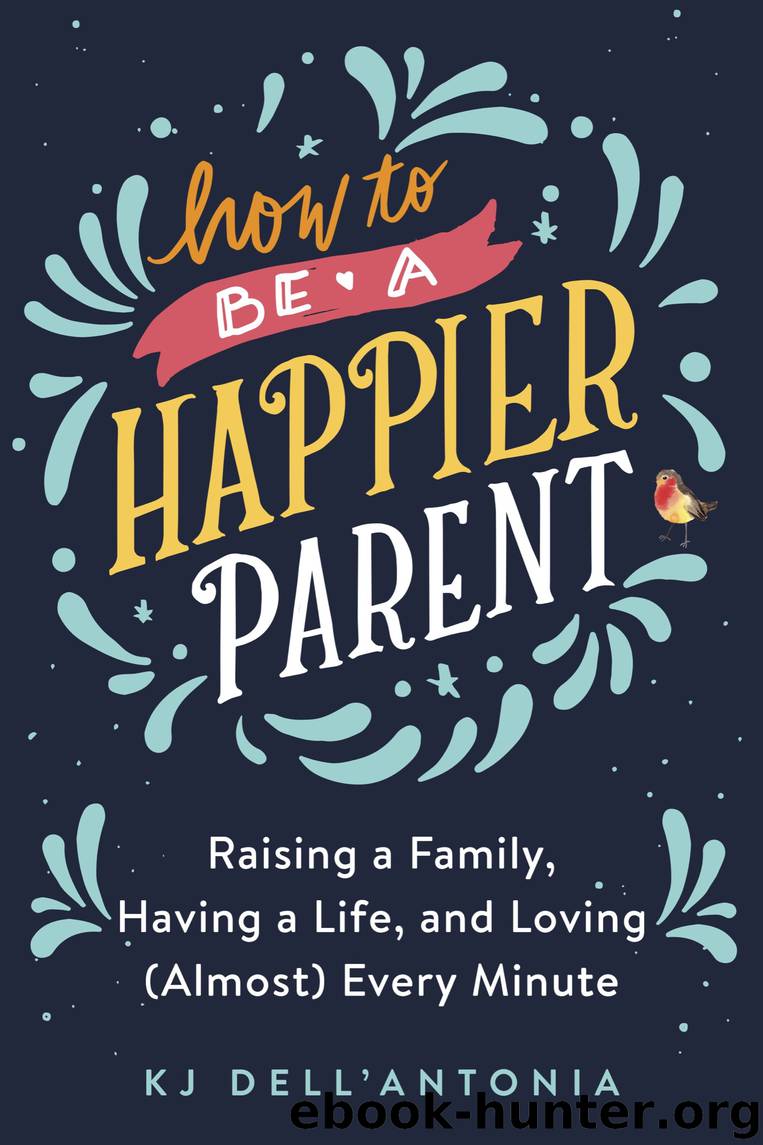How to be a Happier Parent by KJ Dell'Antonia

Author:KJ Dell'Antonia
Language: eng
Format: epub, mobi
Publisher: Penguin Publishing Group
Published: 2018-08-20T16:00:00+00:00
Who Should Do the Talking?
So far, we’ve focused on how parents can advocate for our children around homework—but there does come a point when our children should advocate for themselves. They can use time-honored strategies—making an appointment, going to talk to the teacher—but there are also routes open to the young, naive, and enthusiastic that aren’t open to their elders. When my oldest son was in eighth grade, he and a group of friends entered the Verizon App Challenge, which invited students to develop a smartphone app that would help other students. Their app would have allowed teachers to evaluate how much homework was being assigned to a given student overall, rather than focusing on only a single class. As they said in their presentation, “If a teacher says you’ll have half an hour to an hour of homework a night, that sounds reasonable. But if you have six classes, that’s three to six hours of homework.”
Their idea won the state and regional rounds, although it was not one of the two apps selected to be developed in the national competition. The effect on the school of having five of their students win national honors (and a check for the school’s science education department) for an app that attempted to make their homework more manageable, though, was dramatic. My son and his classmates, who graduated that year, only saw a slight benefit. His younger sister is now in the same middle school, with many of the same teachers. Although she’s a very different student, it’s clear that those teachers are making more of an effort to coordinate large assignments and even nightly work.
The big play—creating a committee, doing a large data-gathering project, making a funny video about homework, or even engaging in protest—is an option for kids. But usually, you’re going to need to help them start exactly where you would start—in a meeting with the teacher—whether the problem is that they’re not understanding classroom lectures enough to do the homework, they want to talk about why the homework is what it is and what it’s for, or they just want to convey how challenged they’re feeling.
Helping your child do this is a little different from getting ready to do it yourself. For starters, an email—the first recourse at nearly every age—is unlikely to be an effective tool for children and teens, for one simple reason: it’s too easy. It’s easy for a child to dash off and too easy for a teacher to disregard—or say no.
It’s much harder to look a teacher right in the face, describe a problem, and wait for a response—and this is much more likely to lead to a positive result. Most children need pushing to do this, and some might even want to write down a few notes about what they want to say. If your child is open to it, talk to him about how the teacher might respond, and how he might feel and then respond himself. Children who are really frustrated in a class might fear tears, and that’s understandable.
Download
How to be a Happier Parent by KJ Dell'Antonia.mobi
This site does not store any files on its server. We only index and link to content provided by other sites. Please contact the content providers to delete copyright contents if any and email us, we'll remove relevant links or contents immediately.
Should I Stay or Should I Go? by Ramani Durvasula(7669)
The Lost Art of Listening by Michael P. Nichols(7506)
The Rosie Project by Graeme Simsion(6415)
Beartown by Fredrik Backman(5755)
We Need to Talk by Celeste Headlee(5615)
Ego Is the Enemy by Ryan Holiday(5450)
Hunger by Roxane Gay(4928)
Suicide Notes by Michael Thomas Ford(4827)
I Love You But I Don't Trust You by Mira Kirshenbaum(3876)
Mummy Knew by Lisa James(3693)
Not a Diet Book by James Smith(3429)
Crazy Is My Superpower by A.J. Mendez Brooks(3401)
Toxic Parents by Susan Forward(3292)
Girl, Wash Your Face by Rachel Hollis(3282)
The Complete Idiot's Guide to Coping With Difficult People by Arlene Uhl(3149)
The Social Psychology of Inequality by Unknown(3031)
Name Book, The: Over 10,000 Names--Their Meanings, Origins, and Spiritual Significance by Astoria Dorothy(2987)
The Hard Questions by Susan Piver(2976)
The Gaslight Effect by Dr. Robin Stern(2794)
